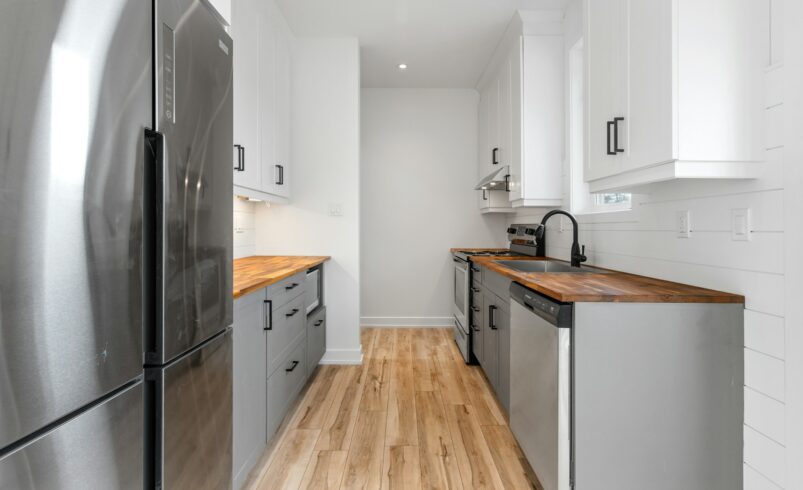Selecting the right general contractor can make the difference between a dream renovation and a homeowner’s nightmare. Whether you’re planning a complete kitchen remodel or updating your entire home, the contractor you choose will determine the quality, timeline, and overall success of your project.
The construction industry is filled with skilled professionals, but not every contractor is the right fit for your specific needs. Some excel at large-scale home renovation projects, while others specialize in smaller, detailed work. Understanding what to look for and which questions to ask can save you thousands of dollars and months of frustration.
This comprehensive guide will walk you through the essential steps to identify, evaluate, and select a general contractor who aligns with your project goals, budget, and timeline. By the end, you’ll have the confidence to make an informed decision that sets your project up for success.
Research and Identify Potential Contractors
Start your search by gathering a list of potential contractors in your area. Begin with referrals from friends, family, and neighbors who have completed similar projects. Their firsthand experiences provide valuable insights into a contractor’s work quality and professionalism.
Online resources can expand your search significantly. Check local business directories, review websites, and social media platforms where contractors showcase their work. Many homeowners searching for “kitchen remodeling near me” find excellent contractors through online portfolios that demonstrate their expertise in specific project types.
Local Building Supply Stores and Trade Associations
Visit local building supply stores and speak with staff members. They often maintain relationships with contractors and can recommend professionals who frequently purchase quality materials. Additionally, contact your local trade associations or chambers of commerce for lists of licensed contractors in your area.
Online Verification Tools
Use your state’s licensing board website to verify contractor licenses and check for any complaints or violations. Most states maintain databases that allow you to search by contractor name or license number, providing transparency about their professional standing.
Verify Credentials and Experience
Proper licensing represents the foundation of any legitimate construction services provider. Every general contractor should hold valid licenses for their area and project type. Licensing requirements vary by state and municipality, so research the specific requirements in your location.
Insurance coverage protects both you and the contractor during the project. Verify that potential contractors carry both general liability insurance and workers’ compensation coverage. Request certificates of insurance directly from their insurance providers rather than relying solely on copies the contractor provides.
Portfolio Review and Specialization
Examine each contractor’s portfolio to assess their experience with projects similar to yours. A contractor who specializes in kitchen remodeling will bring different expertise than one who focuses on whole-house renovations. Look for evidence of quality craftsmanship, attention to detail, and project variety that matches your needs.
Ask about their experience with projects of similar scope and budget. Contractors who regularly work on projects significantly larger or smaller than yours may not be the best fit for your specific requirements.
Get Multiple Detailed Quotes
Contact at least three to five contractors for detailed quotes. This process helps you understand market rates and compare different approaches to your project. Quality contractors will want to visit your property and discuss your vision before providing estimates.
During initial consultations, pay attention to each contractor’s communication style, punctuality, and professionalism. These early interactions often predict how they’ll handle your project. Contractors who ask detailed questions about your goals, timeline, and budget demonstrate thoroughness and genuine interest in your project.
Quote Comparison and Red Flags
Compare quotes carefully, looking beyond just the bottom line. Detailed quotes should include material specifications, labor costs, timeline estimates, and project phases. Be wary of estimates that seem significantly higher or lower than others without clear explanations.
Extremely low bids often indicate corners will be cut on materials, labor, or proper procedures. Conversely, the highest bid isn’t automatically the best choice. Focus on value, which combines fair pricing with quality materials, skilled labor, and comprehensive service.
Check References and Past Work
Contact recent clients to discuss their experiences with each contractor you’re considering. Ask specific questions about project timeline adherence, communication quality, cleanliness, and problem resolution. Most satisfied customers are happy to share their experiences and may even allow you to see completed work.
When possible, visit completed projects to evaluate work quality firsthand. This gives you insight into the contractor’s craftsmanship, attention to detail, and style. Pay attention to finishes, alignment, and overall project execution.
Online Reviews and Better Business Bureau
Research each contractor’s online reputation through multiple platforms. While occasional negative reviews are normal, look for patterns in feedback. Contractors who consistently receive complaints about the same issues may not be suitable for your project.
Check Better Business Bureau ratings and complaint histories. This organization tracks business practices and can provide additional insight into a contractor’s reputation and complaint resolution approach.
Evaluate Communication and Compatibility
Effective communication forms the backbone of successful home renovation projects. During your initial interactions, assess each contractor’s ability to explain complex concepts clearly, respond promptly to questions, and demonstrate genuine interest in understanding your vision.
Consider personality fit and working style compatibility. You’ll interact with your chosen contractor regularly throughout the project, so mutual respect and clear communication are essential. Contractors who listen carefully to your concerns and provide thoughtful responses typically deliver better overall experiences.
Project Management Approach
Discuss each contractor’s project management style and communication preferences. Some contractors provide daily updates, while others communicate weekly. Understand their approach to handling unexpected issues, change orders, and timeline adjustments before making your decision.
Ask about their typical crew size, subcontractor relationships, and quality control processes. Well-organized contractors maintain strong relationships with reliable subcontractors and have established procedures for ensuring work quality at each project phase.
Review Contracts and Warranties
Never begin work without a comprehensive written contract that outlines project scope, materials, timeline, payment schedule, and change order procedures. Quality general contractors provide detailed contracts that protect both parties and set clear expectations.
Payment schedules should align with project milestones rather than requiring large upfront payments. Avoid contractors who demand full payment before beginning work or who request unusual payment methods. Legitimate contractors typically request modest down payments with the balance tied to project completion stages.
Warranty and Follow-up Service
Understand what warranties each contractor offers on their work and how they handle post-project issues. Reputable contractors stand behind their work and provide clear warranty terms for both labor and materials. Ask about their typical response time for warranty-related concerns.
Discuss the process for addressing any issues that arise after project completion. Contractors who provide comprehensive warranties and maintain good relationships with past clients demonstrate confidence in their work quality and commitment to customer satisfaction.
Making Your Final Decision
After completing your research and evaluation process, compile your findings to make an informed decision. Consider all factors including, price, experience, communication quality, references, and your overall comfort level with each contractor.
Remember that the lowest bid isn’t always the best value, and the most expensive option doesn’t guarantee superior results. Focus on finding the contractor who offers the best combination of fair pricing, relevant experience, strong references, and clear communication.
Trust your instincts throughout this process. If something feels wrong about a particular contractor or their approach, continue your search. The right general contractor will make you feel confident about moving forward with your project and excited about the anticipated results.
Your investment in thorough contractor selection will pay dividends throughout your project and for years to come. Take the time necessary to make this decision carefully, and you’ll increase your chances of a successful renovation experience that meets your expectations and enhances your home’s value.










